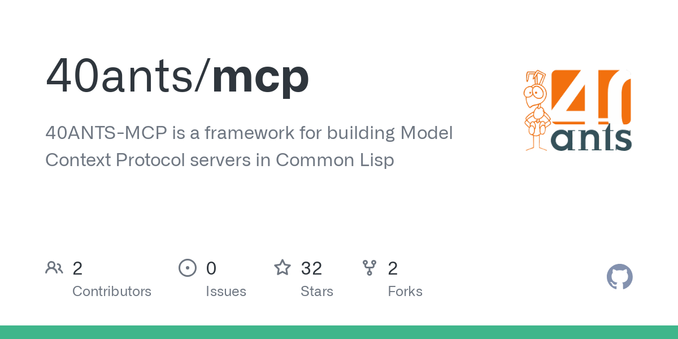#Introduction
Hello, my name is Christoff.
I live in Illinois, USA, outside the St. Louis area. Below I'll talk about my technology and creative interests, and a bit about me personally. I'm going to hashtag the heck out of this post.
the whole "deadbeef" thing is the magic number from #Solaris for freed memory. I simply chose .monster TLD because it seemed cool and I like "extended" TLDs.
#Technology
I have been using a OpenBSD, #NetBSD, or #GNU/#Linux since the late 1990s as a primary workstation. I used macOS from 2020 to 2025, switching to the #KDE neon distro (KDE plasma is amazing and KDE isn't bloated anymore, yay!).
My current career is as a #pentester where I break into web applications, IP networks, mobile applications (especially #Android), and people to their face or over the phone; code #malware; write documentation; and enjoy helping clients in a third party contractor/consultant role. I started that job change in 2020, when I earned the #OSCP certification at the height of "#infosec twitter" when I did well there.
Previously I worked for about 20 years as a senior-level programmer, and systems, infrastructure, and database administrator. Burnout was very real and I was extremely bored/unfulfilled.
Now that programming and sysadmin stuff isn't my career, I find I enjoy programming and tinkering again.
I am a big fan of NetBSD and always have been. I am not a huge fan of GNU/Linux but I do appreciate things "just working", even if it is full of closed-source binary blobs and other garbage. It was fun in the 1990s.
I know many programming languages but have been paid professionally to code in #C, #Perl, #Python, #PHP, #Java, and #Groovy for big commercial entities like eBay, small companies, and the US government.
I've maintained 99.99% uptime for a 60MM+ platform for years, including failover and backups (that were regularly tested... you test your failover and backups, right?!).
I always wanted to be a cool C and low-level programmer, which I thought for the longest time was being a kernel programmer, but now I know that isn't the life for me.
Emacs is something I've enjoyed since the beginning and I still can't code a #Lisp well. I'd love to be a cool #lisper with #CommonLisp, but haven't gotten there yet. I'm on the #c64 and #embedded #retrocomputing train now.
#Creative
For creative stuff, I aim to do a lot but tend to hop around as interests take me. I could use some discipline there (someday?).
For #music, I have an electric #bass (Fender Jazz) and electric #guitar. I love #jambands (#GratefulDead, #Phish, #Goose) and that's the type of music I like to play along to.
For #art, I like #acrylic and #watercolor painting. I rarely do it, but think about it a lot and love it when I do it. I don't have any skill or talent, but that's not the point. It's for me and no one else.
For #computing, I am venturing into #C64 #demoscene programming and exploration. Not only was I too poor to get one when I was little but I sorta forgot about it over time. The desire to do cool things in a restricted environment where folks are playing in the sandbox, too, is very exciting and attractive to me. I don't know how to code the #Commodore64 stuff yet, but will! Learning the assembly language (I have zero desire to code in BASIC again and I can just code assembly).
#Personal
I live with my soulmate and our five amazing cats in a small town outside St. Louis living a quiet life. Just doing our jobs, taking care of daily life stuff, and enjoying each other and life as much as we can. Ups and downs of life chaos, like anyone else, but we're doing alright!
We enjoy exploring places within driving distance and there are a lot of places to go to.
Currently, we're really into playing two-player games together and just started collecting #boardgames. Right now, we're really digging #SkyTeam, #RoyalGameOfUr, #ForrestShuffle, #SentinelsOfTheMultiverse, and this magnet game I don't know the name of. We have #SpiritIsland and #ArcNova to unwrap and learn. We tried really really hard to get into #ArkhamHorrorTheCardGame but the rules are too complicated and confusing, where it felt like we were doing the wrong thing all the time.
I am 46. I grew up loving Star Wars, Star Trek, #SciFi, reading novels non-stop, horror, and watching movies. I collect classic SciFi books from 1960s and 1970s.
I would perhaps describe myself as an extremely curious person, that loves #puzzles and #mysteries, #exploration, figuring out #HumanBehavior like I'm an alien studying humans (I'm good at it, it turns out), that has a keen eye for detail, remembering random little things, and a good listener. I'm fairly adaptable and fluid in most things, which works well for me. My brain works differently than a lot of people, and while frustrating a lot of the time for things I don't understand fully, it is me and serves me well in niches.
Making people laugh makes me happy. I am a #hacker and #tinkerer.

